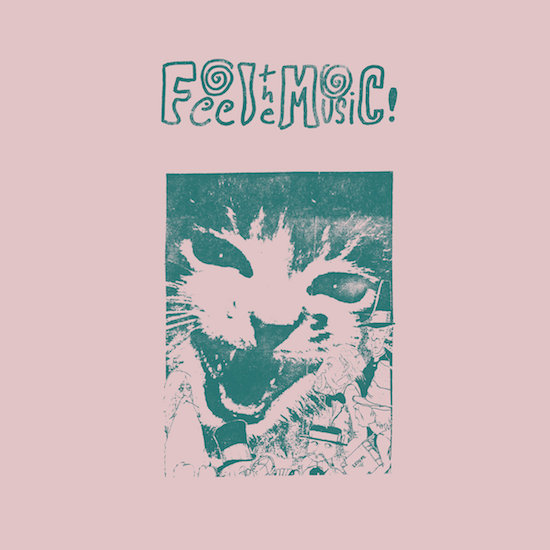The phenomenon of the ‘lost classic’ album unearthed and reissued, the overlooked curio given new wings in the digital age, has gathered so much momentum over the years that the concept has almost been fetishised. These records, often from marginalised artists on tiny imprints or self-releasing, undoubtedly represent a sub-genre on their own, to which whole labels, such as the estimable Light In The Attic, devote nearly their entire output.
That fetishisation is fair enough when the music is good. It isn’t always (Nick Garrie, anyone?), but this year alone we’ve had FJ McMahon and Ed Askew come to light. In 2015 it was Scott Fagan, before that Rodriguez, Carol Kleyn, going further back Vashti Bunyan and Gary Higgins… You could even trace the concept back to Nick Drake’s critical reappraisal in the 90s.
And while the notion of the reissued gem from the vaults may have become a little over-commodified and occasionally exploited, these records and their makers continue to tell an important alternative history of popular music. The unheard, the dismissed, the forgotten and the obsolete can offer insights into the development of genre, technology and politics within western rock (as it usually is). It isn’t, I hope, too much to compare the reappraisal of these records with Walter Benjamin’s attempted reinterpretation of history in The Arcades Project by recontextualising cultural and technological signifiers and artefacts that were rejected or ignored by popular culture. Benjamin biographer Stuart Jeffries describes this in a way that could easily apply to the ongoing cult of exhumed albums; he writes of Benjamin “studying the overlooked, the worthless, the trashy, the very things that didn’t make sense within the official version of history but which, he maintained, encoded the dream wishes of the collective consciousness.”
Paul Major, singer with Endless Boogie, used his encyclopedic (and frankly intimidating) knowledge of record collecting to tap into rock’s ignored history with his 2017 book Feel The Music: The Psychedelic Worlds of Paul Major, which celebrates the most fascinating records rejected by tastemakers and the industry over the decades. This accompanying compilation album, made up of misfits and so-called outsider artists, offers a comprehensive taster of the scruffily recorded, lyrically abstruse, attractively melodic garage-psych that is among Major’s preferred tastes.
The tracks date from 1969 to 1979 and, according to the press blurb, are “some of the weirdest records of all time”. Yet the majority of these 12 relics are actually not that weird, with the influence of better-known artists constantly recognisable. Neil Young and Crazy Horse here, Velvet Underground there, The Crazy World of Arthur Brown, Jefferson Airplane, early Beefheart, Skip Spence on more than one occasion, and more. The most avant-garde piece is probably Jerry Solomon’s ‘Denied’, a marvellously warped meditation on alienation and rejection in which Solomon’s vocals are muddied into a kind of low, droney soup accompanied by dismally affecting percussion and piano tinkles, like an even more ghastly version of the Grateful Dead’s ‘What’s Become of the Baby?’ If nothing else, Feel The Music points listeners to this most hypnotising of musical extremists.
Otherwise, the album’s strong points come with the more wistful folk-ish morsels, such as ‘Behold’ by Justyn Rees, with its echoes of Love and Space Oddity-era Bowie, and Dave Porter’s ‘Where Do Clouds Go?’, Porter’s impressive voice, a cross between Andy Williams and Bryan Ferry, sonorously to the fore. Closer ‘I Feel The Need To Carry On’ by Darius is another of Major’s choices that reflect an affection for neat songwriting as much as wacky production.
Indeed, Major’s song selection is engagingly diverse, even if most, if not all, of the artists are North American and, more seriously and rather troublingly, there are no women featured. The downright silliness of certain tracks is a welcome relief in the wake of Solomon’s grimness, in particular Canadian singer-songwriter Sebastian’s 1970 song ‘Passages’, which begins with the dubious line, "I wandered stately as a prism / The signs I’m told did mark all man", and the enjoyable nonsense that is ‘Captain Zella Queen’ by Marcus, a dizzying 1979 slice of psychsploitaiton.
The ambiguous terms ‘outsider art’ or ‘outsider music’ might be used in relation to this wonderful collection. Yet it’s hard to see it as outsider, given that the songs follow in the slipstream of some style or another that informed the zeitgeist of the late 60s and 70s – with the notable exception of Solomon. So while these tracks might not be all that strange or experimental, they do encode those ‘dream wishes’, to appropriate Jeffries’ term, of a generation.


